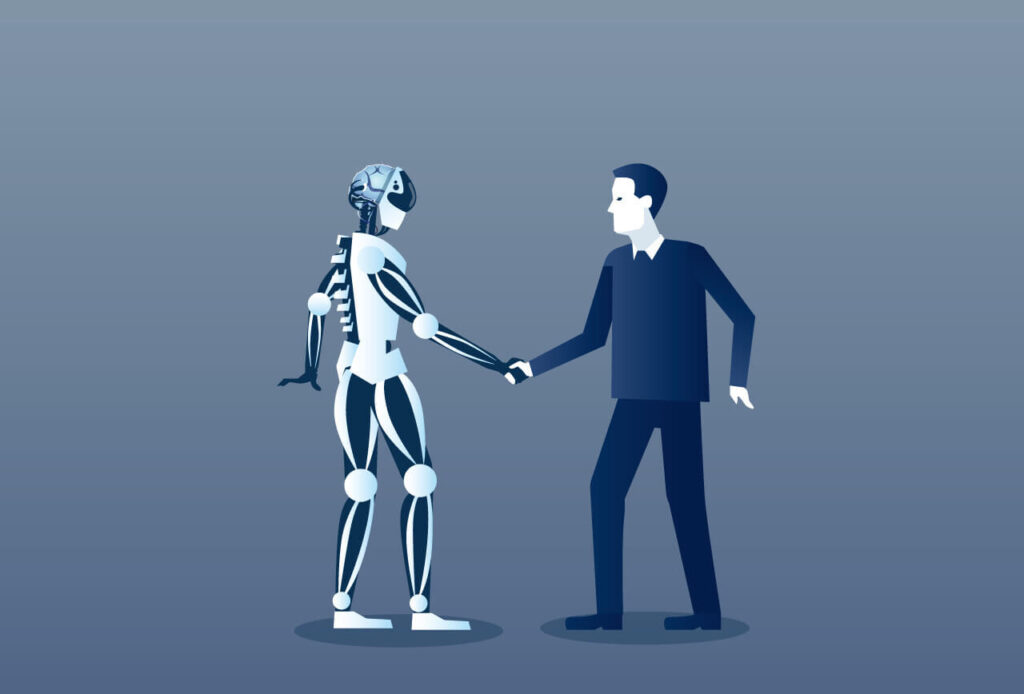
In today’s rapidly evolving digital landscape, the role of AI data scientists has witnessed a profound transformation. No longer confined to generic data analysis tasks, these professionals have found their niche in industry-specific positions. But what does this evolution entail, and how are AI data scientists making their mark in various sectors? Let’s delve into this intriguing journey of adaptation and innovation.
Adapting to the Industry Landscape
Industries are unique ecosystems with their own challenges and opportunities. AI data scientists, once considered generalists, are now specialists who understand the intricacies of their respective sectors. How do they adapt?
- Deep Industry Knowledge: AI data scientists are immersing themselves in their chosen industries. Whether it’s healthcare, finance, or manufacturing, they’re gaining domain expertise to understand the nuances.
- Tailored Solutions: Instead of one-size-fits-all models, they craft bespoke AI solutions. For instance, in healthcare, they design predictive algorithms for disease diagnosis, while in finance, risk assessment models are their forte.
- Data Source Diversity: They tap into diverse data sources unique to their industries. In agriculture, it could be satellite imagery, while in entertainment, it might be user-generated content.
- Regulatory Compliance: Industries come with their own set of regulations. AI data scientists navigate these complex compliance landscapes seamlessly.
Why are these changes essential? Industries need AI solutions that resonate with their specific challenges. A healthcare AI model won’t be as effective in agriculture, and vice versa.
AI Data Scientists: The Problem Solvers
In industry-specific roles, AI data scientists wear many hats. They’re not just crunching numbers; they’re problem solvers par excellence. How do they tackle the unique challenges posed by their industries?
- Healthcare Heroes: In healthcare, they work on predictive analytics to identify disease outbreaks, optimize patient care, and even predict equipment failures in hospitals.
- Financial Wizards: In finance, they’re the wizards behind fraud detection, algorithmic trading, and credit risk assessment models.
- Manufacturing Maestros: In manufacturing, they optimize supply chains, predict machine breakdowns, and enhance quality control.
- Retail Gurus: In retail, they craft recommendation engines, dynamic pricing models, and inventory management solutions.
In essence, AI data scientists have evolved into problem-solving partners for businesses across various sectors.
The Collaborators: Working Hand in Hand with Domain Experts
Collaboration is the name of the game for AI data scientists in industry-specific positions. They don’t work in isolation but rather synergize with domain experts to achieve optimal results. How does this collaboration work?
- Understanding Business Goals: AI data scientists align their work with the overarching business goals of their industry. For instance, in agriculture, it might be increasing crop yield, while in aviation, it could be enhancing safety measures.
- Effective Communication: They bridge the gap between technical jargon and industry-specific language, ensuring that their solutions are not just effective but also understandable to non-technical stakeholders.
- Iterative Development: Collaboration leads to iterative development. AI data scientists work closely with domain experts to refine and improve their models continuously.
AI Data Scientists: The Ethical Guardians
As AI becomes more integrated into industries, ethical considerations become paramount. AI data scientists are not just creators; they’re ethical guardians, ensuring that AI applications are responsible and fair.
- Bias Mitigation: They actively identify and mitigate bias in AI algorithms. In lending, for example, they ensure that AI doesn’t discriminate based on gender, race, or any other protected characteristic.
- Transparency: They promote transparency by making AI models interpretable. This helps stakeholders understand how decisions are reached, especially in industries like law and justice.
- Privacy Protection: In healthcare and other data-sensitive sectors, they implement robust privacy protection measures to safeguard sensitive information.
AI Data Scientists in the Driver’s Seat

In many industries, AI data scientists have shifted from being support players to drivers of innovation and strategy. How do they take the wheel?
- Innovation Catalysts: They identify untapped opportunities for AI adoption and spearhead innovative projects. For instance, in agriculture, they champion the use of drones for precision farming.
- Strategic Advisors: AI data scientists advise industry leaders on AI strategies, helping them stay ahead of the competition. They guide decisions on technology adoption and investment.
- Data Monetization: They explore avenues to monetize data, a valuable asset in the digital age. Industries can leverage their data for additional revenue streams.
The Future Horizon: What Lies Ahead?
The evolution of AI data scientists in industry-specific positions is an ongoing process, and the future holds exciting prospects.
- AI Ethicists: With the increasing importance of ethics in AI, we might see the rise of AI ethicists who specialize in ensuring ethical AI practices across industries.
- AI-Powered Creativity: In sectors like entertainment and marketing, AI data scientists could push the boundaries of creativity, generating content and campaigns that resonate with audiences.
- AI as Decision-Makers: As AI becomes more advanced, it may take on a more active role in decision-making, especially in industries where data-driven decisions are critical.
Pioneers of Industry Transformation

The evolution of AI data scientists into industry-specific positions signifies a pivotal shift in the modern business landscape. These professionals have emerged as pioneers, leading industries into a new era of transformation and innovation.
Their adaptability and innovative spirit have propelled them from the sidelines to the forefront of various sectors. No longer confined to generic data analysis tasks, they wield their deep industry knowledge as a tool for reshaping industries.
Their problem-solving prowess knows no bounds, whether it’s predicting disease outbreaks in healthcare, enhancing fraud detection in finance, or optimizing supply chains in manufacturing. They’re not just solving problems; they’re shaping the future.
Their collaboration with domain experts fosters synergy, translating complex technical jargon into actionable insights that drive business goals. This partnership ensures that AI solutions are not just effective but also aligned with industry-specific objectives.
Furthermore, their unwavering commitment to ethics ensures that AI applications are responsible and fair. They actively address bias, promote transparency, and safeguard privacy, thus setting high ethical standards for AI in industries.
As industries continue to embrace AI, the role of these data scientists will only become more pivotal. They will continue to drive innovation, unlocking new possibilities, and guiding industries toward a future where AI is not just a tool but a driving force for progress. These AI data scientists are indeed the architects of industry transformation, and their journey is far from over.
Frequently Asked Questions (FAQ) – The Evolving Role of AI Data Scientists in Industry-Specific Positions
Here are some common questions and concise answers regarding the evolving role of AI data scientists in industry-specific positions:
- What is the role of AI data scientists in industry-specific positions?
Answer: AI data scientists in industry-specific positions specialize in leveraging artificial intelligence and data analysis techniques to address unique challenges within a particular industry. They focus on developing tailored solutions, collaborating with domain experts, and ensuring ethical AI practices.
- How do AI data scientists adapt to different industries?
Answer: AI data scientists adapt to different industries by acquiring deep domain knowledge, customizing AI solutions to industry-specific needs, diversifying data sources, and complying with industry regulations and standards.
- What makes AI data scientists effective problem solvers in their industries?
Answer: AI data scientists excel as problem solvers by applying AI techniques to industry-specific challenges. They create solutions such as disease outbreak prediction in healthcare, fraud detection in finance, and supply chain optimization in manufacturing.
- How do AI data scientists collaborate with domain experts?
Answer: Collaboration with domain experts involves understanding industry goals, effective communication to bridge technical and industry-specific language gaps, and iterative development to refine AI models in tandem with industry professionals.
- What role do AI data scientists play in ensuring ethical AI practices?
Answer: AI data scientists serve as ethical guardians by identifying and mitigating bias in AI algorithms, promoting transparency in decision-making, and implementing privacy protection measures, ensuring responsible and fair AI applications.
- How have AI data scientists transitioned to driving innovation and strategy in industries?
Answer: AI data scientists have transitioned to becoming innovation catalysts by identifying opportunities for AI adoption, serving as strategic advisors to industry leaders, and exploring data monetization avenues.
- What can we expect in the future of AI data scientists in industry-specific positions?
Answer: The future of AI data scientists may include specialized roles such as AI ethicists, AI-powered creativity in sectors like entertainment and marketing, and increased AI involvement in critical decision-making processes across industries.
- How can industries benefit from the evolving role of AI data scientists?
Answer: Industries can benefit from AI data scientists by gaining access to more effective and tailored AI solutions, improved decision-making, enhanced innovation, and the potential for additional revenue streams through data monetization.